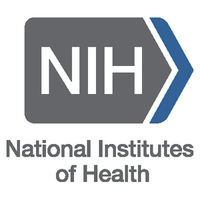预约演示
Tryptophan in diet, gut bacteria protect against E. coli infection
2024-03-13
临床研究微生物疗法
Gut bacteria and a diet rich in the amino acid tryptophan can play a protective role against pathogenic E. coli, which can cause severe stomach upset, cramps, fever, intestinal bleeding and renal failure.
Gut bacteria and a diet rich in the amino acid tryptophan can play a protective role against pathogenic E. coli, which can cause severe stomach upset, cramps, fever, intestinal bleeding and renal failure, according to a study published March 13 in Nature.
The research reveals how dietary tryptophan -- an amino acid found mostly in animal products, nuts, seeds, whole grains and legumes -- can be broken down by gut bacteria into small molecules called metabolites. It turns out a few of these metabolites can bind to a receptor on gut epithelial (surface) cells, triggering a pathway that ultimately reduces the production of proteins that E. coli use to attach to the gut lining where they cause infection. When E. coli fail to attach and colonize the gut, the pathogen benignly moves through and passes out of the body.
The research describes a previously unknown role in the gut for a receptor, DRD2. DRD2 has otherwise been known as a dopamine (neurotransmitter) receptor in the central and peripheral nervous systems.
"It's actually two completely different areas that this receptor could play a role in, which was not appreciated prior to our findings," said Pamela Chang, associate professor of immunology in the College of Veterinary Medicine and of chemical biology in the College of Arts and Sciences. "We essentially think that DRD2 is moonlighting in the gut as a microbial metabolite sensor, and then its downstream effect is to help protect against infection."
Samantha Scott, a postdoctoral researcher in Chang's lab, is first author of the study, "Dopamine Receptor D2 Confers Colonization Resistance via Microbial Metabolites."
Now that Chang, Scott and colleagues have identified a specific pathway to help prevent E. coli infection, they may now begin studying the DRD2 receptor and components of its downstream pathway for therapeutic targets.
In the study, the researchers used mice infected with Citrobacter rodentium, a bacterium that closely resembles E. coli, since certain pathogenic E. coli don't infect mice. Through experiments, the researchers identified that there was less pathogen and inflammation (a sign of an active immune system and infection) after mice were fed a tryptophan-supplemented diet. Then, to show that gut bacteria were having an effect, they gave the mice antibiotics to deplete microbes in the gut, and found that the mice were infected by C. rodentium in spite of eating a tryptophan diet, confirming that protection from tryptophan was dependent on the gut bacteria.
Then, using mass spectrometry, they ran a screen to find the chemical identities of tryptophan metabolites in a gut sample, and identified three such metabolites that were significantly increased when given a tryptophan diet. Again, based on pathogen levels and inflammation, when these three metabolites alone were fed to the mice, they had the same protective effect as giving the mice a full tryptophan diet.
Switching gears, the researchers used bioinformatics to find which proteins (and receptors) might bind to the tryptophan metabolites, and from a long list they identified three related receptors within the same family of dopamine receptors. Using a human intestinal cell line in the lab, they were able to isolate receptor DRD2 as the one that had the protective effect against infection in the presence of tryptophan metabolites.
Having identified the metabolites and the receptor, they analyzed the downstream pathway of DRD2 in human gut epithelial cells. Ultimately, they found that when the DRD2 pathway was activated, the host's ability to produce an actin regulatory protein was compromised. C. rodentium (and E. coli) require actin to attach themselves to gut epithelial cells, where they colonize and inject virulence factors and toxins into the cells that cause symptoms. But without actin polymerization they can't attach and the pathogen passes through and clears.
The experiments revealed a new role of dopamine receptor DRD2 in the gut that controls actin proteins and affects a previously unknown pathway for preventing a pathogenic bacteria's ability to colonize the gut.
Jingjing Fu, a former postdoctoral researcher in Chang's lab, is a co-author.
The study was supported by the Arnold and Mabel Beckman Foundation, a President's Council of Cornell Women Affinito-Stewart Grant, the National Institutes of Health and a Cornell Institute of Host-Microbe Interactions and Disease Postdoctoral Fellowship.
更多内容,请访问原始网站
文中所述内容并不反映新药情报库及其所属公司任何意见及观点,如有版权侵扰或错误之处,请及时联系我们,我们会在24小时内配合处理。
药物
-生物医药百科问答
全新生物医药AI Agent 覆盖科研全链路,让突破性发现快人一步
立即开始免费试用!
智慧芽新药情报库是智慧芽专为生命科学人士构建的基于AI的创新药情报平台,助您全方位提升您的研发与决策效率。
立即开始数据试用!
智慧芽新药库数据也通过智慧芽数据服务平台,以API或者数据包形式对外开放,助您更加充分利用智慧芽新药情报信息。



